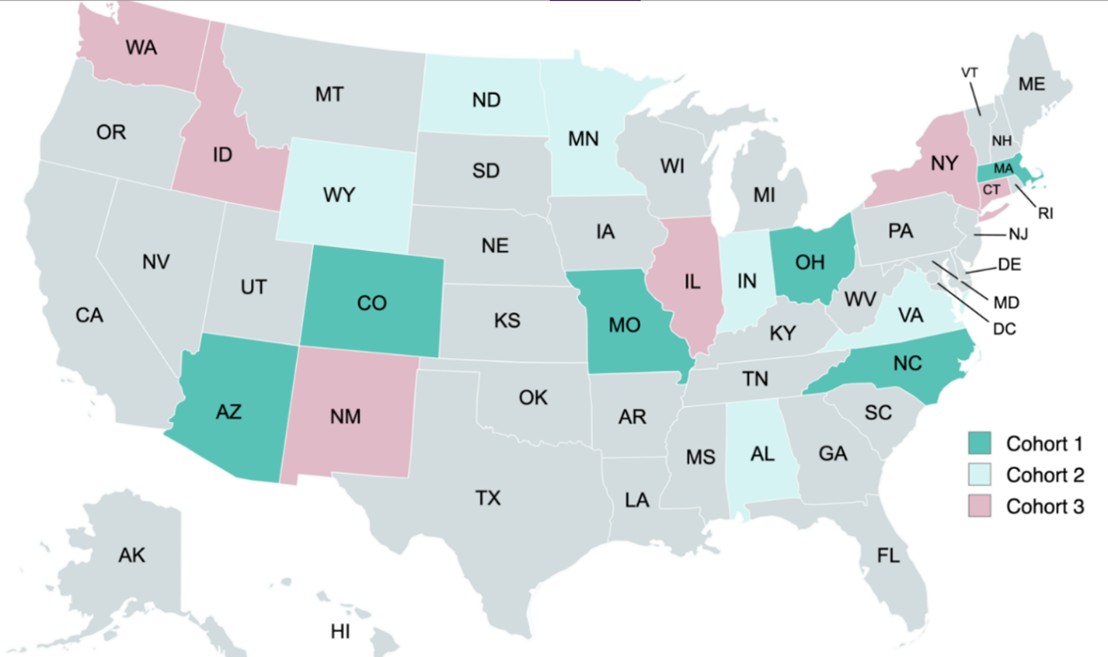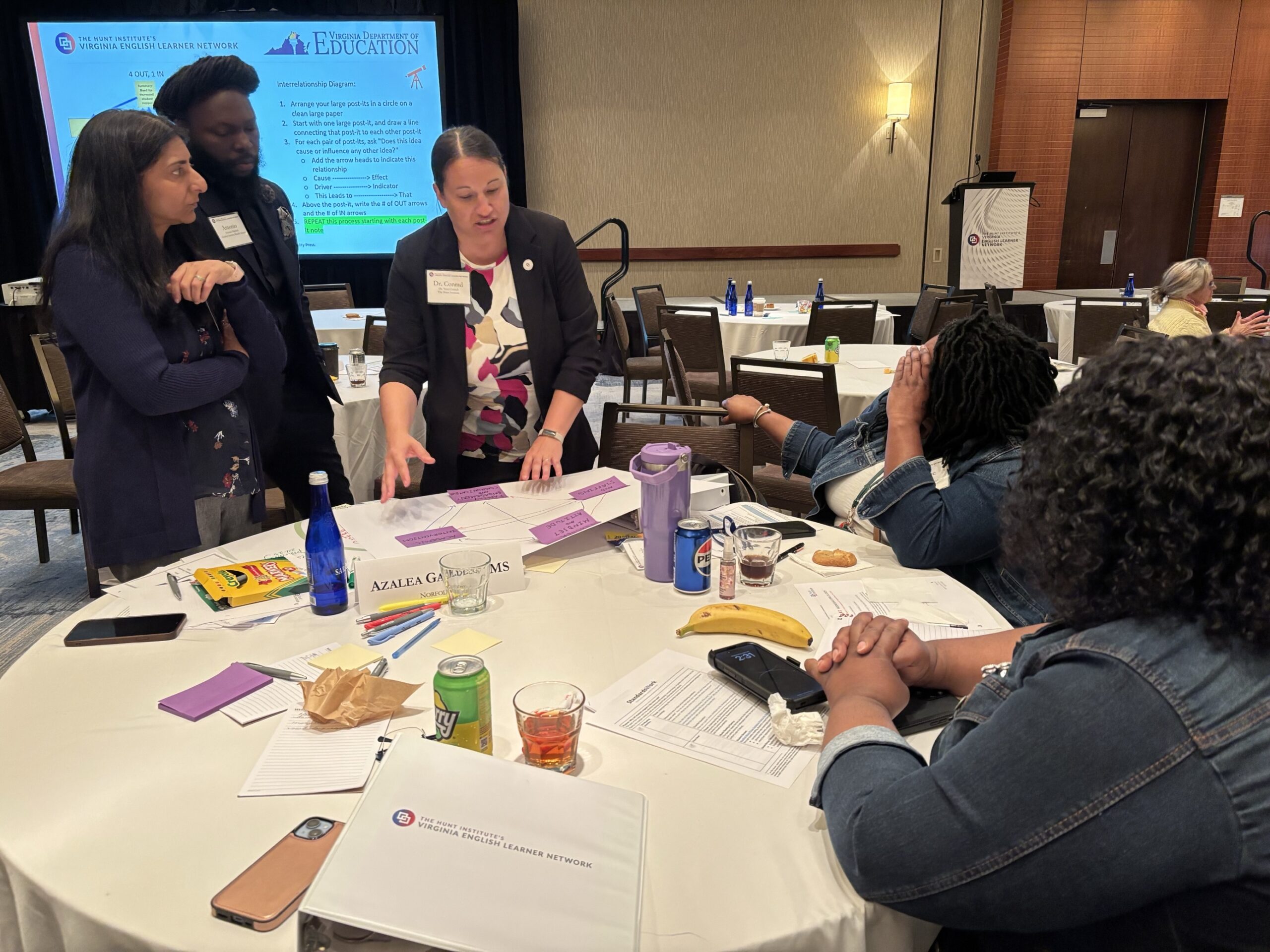

May 2, 2025
While national progress stalls, Alabama shows early signs of improvement — and Virginia offers a promising blueprint for turning literacy policy into practice.
Author: Kathleen E. Arney, M.Ed., Senior Policy Analyst, The Hunt Institute
As education leaders scour the latest National Assessment of Education Progress (NAEP) data for bright spots, burning questions still remain: What have we achieved? Have we truly moved the needle on student outcomes or are we left with costly initiatives and little progress to show for it?
The stark reality: post-pandemic progress is slow, and isolated breakthroughs are rare.
Despite national setbacks, some states are proving that progress is possible. Our President and CEO Dr. Javaid Siddiqi wrote about their secret — policy implementation — here on K-12 Dive.
Since 2013, 40 states and the District of Columbia implemented legislation related to the use of evidence-based practices in reading instruction. These practices refer to the combination of language comprehension and word recognition to create reading comprehension.
The thing is, evidence-based practice is only effective in practice. Legislation is half the battle.
The Hunt Institute supports a network of 18 states through The Path Forward program in pursuit of effectively implementing evidence-based literacy practices in instruction. The program currently provides coaching to state teams on the next steps in the process practicing evidence-based strategies.
Alabama, for example, is turning evidence-based literacy strategies into action — and the results are starting to show.

The Hunt Institute’s Path Forward program supports 18 states in bringing evidence-based literacy practices to life.
In 2019, Alabama passed the Alabama Literacy Act supporting reading instruction for Kindergarten through third grade. The bill targeted funding and resources to ensure effective implementation, requiring:
To effectively enact the Alabama Literacy Act, the Alabama State Department of Education developed an implementation guide complete with professional learning opportunities, plans for monitoring progress, and next steps.
Many states lack codified requirements for teacher literacy training in educator preparation programs (EPP). In contrast, Alabama has taken a proactive approach through its Path Forward team, which has led statewide teacher literacy training efforts. This initiative was guided by the Barksdale Reading Institute audit in 2020. The audit informed recommendations for improving teacher training in EPPs.
The Path Forward team alongside The Hunt Institute continues to engage Alabama’s Institutes of Higher Education Taskforce with representatives from EPPs across the state, the Alabama Reading Initiative, and other stakeholders.
Alabama Literacy Support Teams
Alabama’s investment into educator training may be paying off; Alabama is one of two states who has seen a score difference between 2019 and 2024 4thgrade reading NAEP results. While this progress is slow, it is promising as it offers one of the few bright spots in this data.
In 2022, the General Assembly passed the Virginia Literacy Act with implementation targets for the 2024—2025 school year. The Virginia Literacy Act requires:
In addition to their participation in The Path Forward, the Virginia Department of Education developed three school support networks to target key areas of literacy instruction: Students with Disabilities, English Language Learners, and Tier 1 Instruction or direct classroom instruction.
The Virginia English Learner Network, VA ELN, facilitated by The Hunt Institute, offers direct support to school teams identified on a volunteer or need basis to develop plans to strengthen literacy education for their English Learner students. Beginning in 2024, the VA ELN kicked off with a cohort of 30 schools across elementary, middle, and high schools in the state. Each school is collaborating with a coach from StandardsWork to develop plans that are responsive to local needs.

Educators collaborate on solutions the challenges they encounter while supporting English learners at our Virginia English Learners Network event.
While Virginia’s results may not land overnight, the deliberate focus on supporting the students who need it most — combined with real, hands-on classroom work — makes one thing clear: they’re not just talking about high-quality instruction, they’re doing something about it.
Lessons for leaders:
While the bright spots in the NAEP data may be limited for 2024, Alabama and other growth states demonstrate that progress continues to be possible. Their success is not accidental — it’s the result of strategic investments, evidence-based instruction, and a sustained commitment to educator training.
Now is the time for state and district leaders to take bold action. The Hunt Institute is here to help. Through programs like The Path Forward, The Institute works with states to bridge the gap between research and practice, providing expert coaching, strategic guidance, and a network of states to support implementation of evidence-based literacy practices.